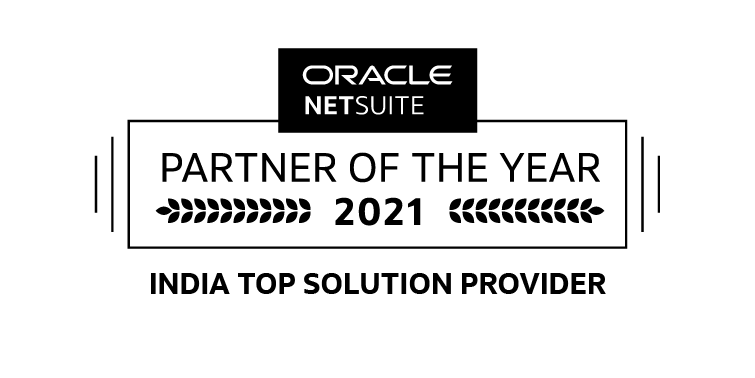Table of Contents
NetSuite is a power-packed cloud-based ERP platform. This extensively invented ERP solution empowers businesses with an array of intuitive and industry-specific capabilities to streamline operations and drive extensive business growth.
However, with business expansion, the volume of business data and transactions increases. Eventually, it leads to performance challenges. To optimize the benefits of NetSuite Solutions and ensure smooth operations, businesses should essentially optimize NetSuite’s performance.

Let’s Explore A Comprehensive Guide On Ways To Optimize NetSuite System Performance to Drive Efficiency, and Productivity, and Improve User Experience
Conducting A Performance Audit
Before you implement any optimization measures, it is important to conduct a thorough performance audit of your NetSuite system and solutions. This assessment helps identify existing performance bottlenecks, know areas of improvement, and the root causes of downtime.
For the most part, this performance audit involves reviewing system configurations, usage patterns, data volumes, customizations, and third-party integrations. Also, you can create a targeted optimization strategy by gaining a clear understanding of the system’s current state.
Optimizing Data Structure and Usage
Businesses should follow the practice of effective data management to optimize NetSuite’s performance.
- Administrators should regularly remove obsolete or redundant records and data to drop the database size and improve query performance.
- One should build appropriate indexes on frequently accessed fields to speed up search operations and improve overall database performance.
- You should segment data into logical partitions based on access frequency and business needs.
- Businesses must archive historical data and periodically purge unnecessary records to prevent data overload and improve system responsiveness.
Customizing NetSuite Wisely
With NetSuite’s flexibility, you can go for extensive customizations. However, it may adversely impact business processes. Hence, businesses should opt for optimizing customizations:
- Regularly review existing customizations
- Remove any redundant or outdated scripts, workflows, or custom objects
- Optimize custom scripts for efficiency and execute only when necessary
- Minimizing unnecessary processing
- Control governance points, such as SuiteScript governance units
Monitoring Business Workflows
To optimize workflows, which are powerful automation tools and poorly designed to slow down system performance.
- Evaluate your existing workflows to reduce redundancy and complexity.
- Simplify or combine workflows
- Abstain from creating recursive workflows that trigger multiple iterations
- Set workflows to run during off-peak hours or low-activity periods
Optimizing SuiteScript and SuiteTalk
You can optimize SuiteScript and SuiteTalk to integrate with NetSuite
- Write SuiteScripts with efficiency in mind to avoid unnecessary iterations and database operations.
- Drop external API calls and web service requests with efficient batching and caching.
- Implement caching mechanisms to store frequently accessed data and reduce database calls
Streamlining SuiteAnalytics
With NetSuite’s SuiteAnalytics, you can avail of powerful reporting and analytical capabilities.
- Write efficient queries that retrieve the required data only and avoid overly complex joins.
- You can schedule resource-intensive reports to run during off-peak hours.
- Consider data warehousing solutions to unload analytical processing from the primary production database.
Enhancing User Interface Performance
To optimize the NetSuite user interface
- Restrict the number of custom fields on forms and records to drop rendering time
- Use saved searches instead of custom reports on frequently accessed data
- Review dashboard widgets and remove any unnecessary elements
Performance Testing
For the most part, optimization is an ongoing process. You can connect to an accredited NetSuite Partner to conduct regular performance testing. It helps gauge the effectiveness of your optimization efforts and spot new areas for improvement. Interestingly, automated testing tools help monitor performance over time and notifications of potential issues before they become critical.

NetSuite for IT/ITES Industry Features
Order Management
To avail of NetSuite ERP Benefits via optimization, you can jump-start your Order-to-Cash Process by eliminating manual bottlenecks. Businesses should establish a smooth flow from sales quotes to approved orders with intelligent workflows. With such capabilities, you can automate approvals, pricing, and discounting.
- Automate order validation and quality assurance.
- Establish credit controls.
- Support discount approvals.
- Manage your subscription business.
Streamline Billing
With NetSuite ERP, you can streamline billing across multiple revenue streams and automate billing across your product, subscription, and service revenue streams.
- Automated order-to-cash process.
- Create, transmit, and collect invoices.
- Sales order billing
- Project billing
- Usage or Consumption billing
- Real-time access to data
Revenue Recognition
You can recognize revenue with confidence and accuracy by leveraging NetSuite for the IT/ITES industry. This ERP Solution solves complex revenue recognition challenges via current standards and prepares you to comply with evolving rules and guidelines.
- Automated complex revenue recognition.
- Agile revenue recognition scheduling.
- Comply with existing standards:
- Revenue arrangements with multiple elements
- Percentage-of-completion accounting
Accelerated Financial Closure
Businesses in the IT/ITES Industry can close with confidence and report financials accurately. NetSuite ERP integrates rich accounting functionality with strong compliance management to eliminate manual reconciliations.
- General ledger
- Accounts receivables
- Accounts payable
- Internal controls
- Compliance
- Audit trails
- Tax management
Recurring Revenue Engine
You can grow recurring revenue streams with power-packed subscription and maintenance renewals.
- Term subscription management
- Change order management
- Contract renewal automation
- Termination and cancellations
- Support for upsell and cross-sell
Global Financial Consolidation
Organizations can drive global recognition by effortlessly expanding to International Markets.
For the most part, when your business grows globally, you need seamless management of multiple currencies, tax rules, and reporting requirements.
- Global accounting and consolidation
- Extensive multicurrency management
- Audit and compliance reporting
- Comprehensive language support
- Configurable tax engine
- Visibility at the global and subsidiary level
inoday, #1 ORACLE NetSuite Channel Partner, Your NetSuite Optimization Experts
If you are willing to drive business benefits from NetSuite performance optimization, inoday is here to help you with expertise and experience. Our NetSuite consultants will evaluate your current NetSuite solution, identify pain point areas, and suggest improvements, making a complete plan for implementation. Since 2007, inoday has earned global recognition for uncompromised solutions, proven methodologies, and willingness to respond.
FAQs
Which industry uses NetSuite?
NetSuite ERP is used by customers in businesses across IT and ITES, Staffing and Recruiting, Manufacturing, Professional Services, Warehouse, Accounting and Finance, and Ecommerce Industry. You can avail of a custom NetSuite ERP solution from a certified Channel Partner as well.
What is NetSuite software used for?
NetSuite is the leading integrated cloud business software to help you manage inventory, track financials, host e-commerce stores, and maintain customer relationship management systems.
How can I improve my NetSuite performance?
You can optimize NetSuite by reviewing available preference options at Home > Set Preferences. It allows you to adjust the preferences to speed up page loading.
To optimize NetSuite Performance for Your Business, write to us at info@inoday.com Or Schedule A Demo








